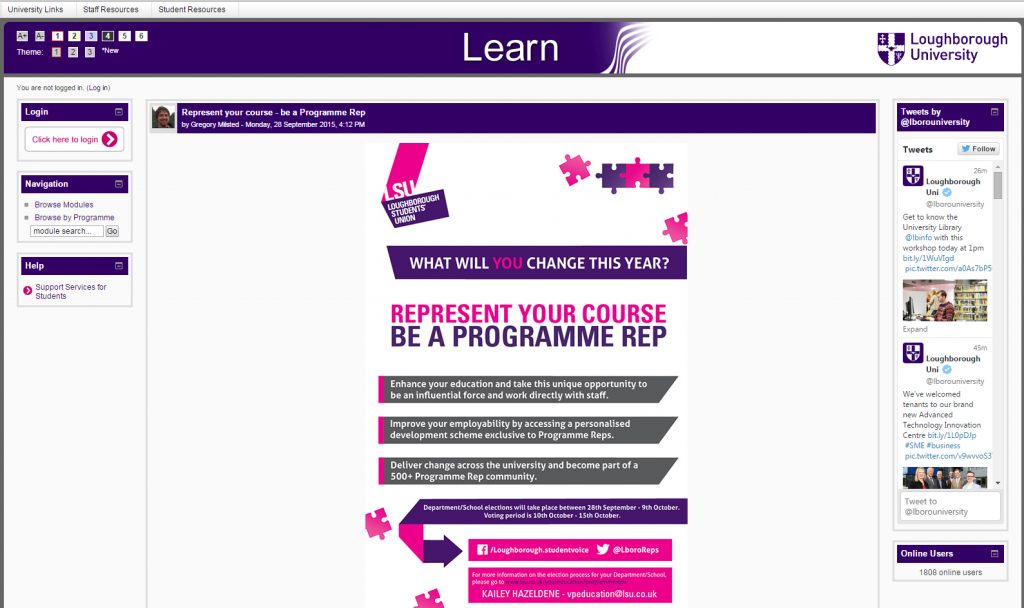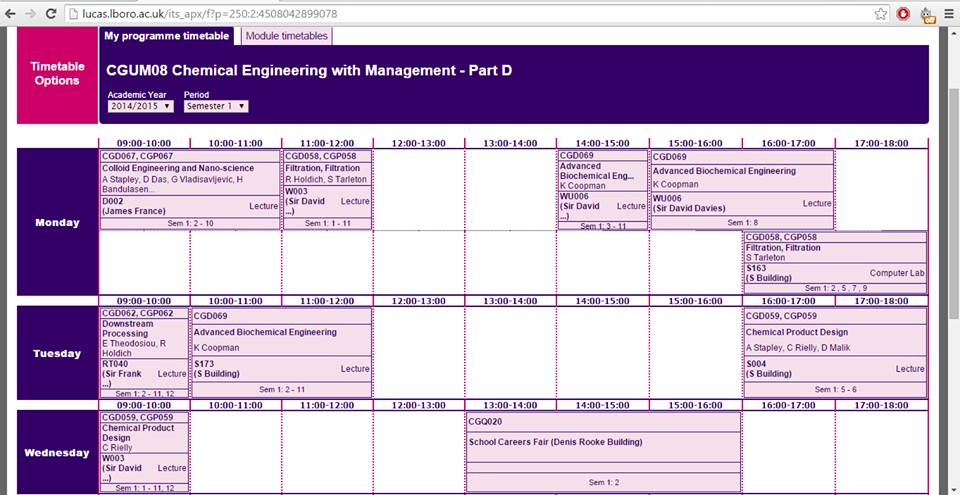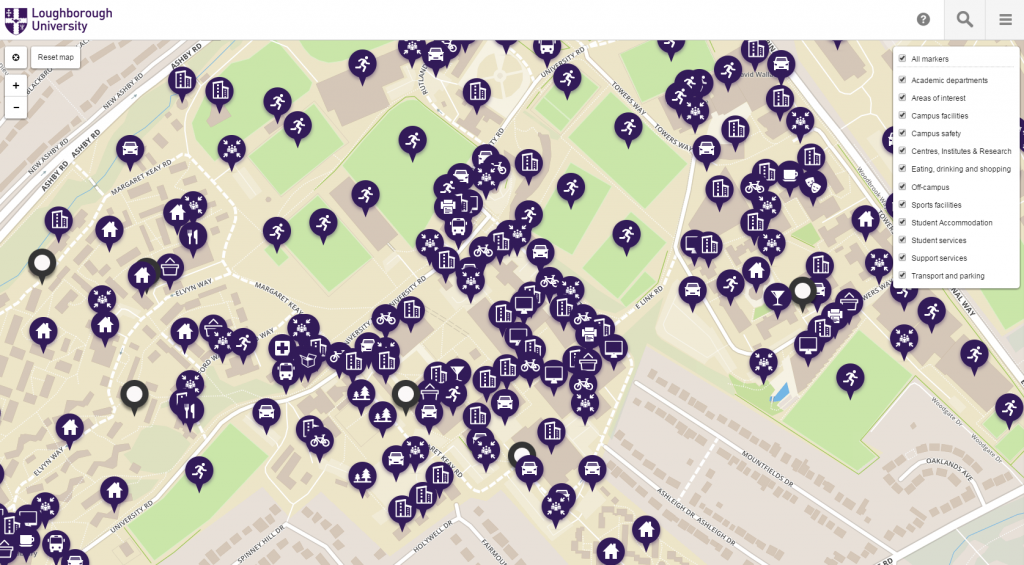Getting to grips with academic jargon at Loughborough
The beginning of university can sometimes feel like a baptism of fire. Freshers’ Week aside, you are bombarded with new information from all angles; from the overwhelming amount of information to do with your new course, getting to grips with your new location or remembering those all-important faces which have entered your sphere – there’s a lot to remember.
As you begin your course, it is likely that you will encounter some terms that you’ve not heard before. You might have downloaded your new timetable, and suddenly be thinking “What is CC0.012?”, “What does ‘Lec’ and ‘Sem’ mean?” or “Am I part A, B or C?”. Fear not! We’ve put together this academic jargon buster to help you familiarise yourself with some of the new language that you’ll be hearing in and around university.
What is the difference between a Semester and a Term?
The term dates for this academic year are as follows:
- Autumn Term: 1 October 2018 – 14 December 2018
- Spring Term: 7 January 2019 – 29 March 2019
- Summer Term: 29 April 2019 – 19 June 2019
This means that the Christmas break occurs from 14th December to 7th January. This is followed by the Easter break which starts 30th March and ends 29th April. And finally, the summer term finishes on 19th June.
Semesters divide the academic year into two halves. The semester dates for the academic year spanning 2017-2018 are as follows:
Semester 1: 1 October 2016 – 1 February 2017
Semester 2: 4 February 2017 – 19 June 2017
Each semester is 12 weeks long and usually – depending on your course – culminates in an examination or assessment period; one in January (Semester 1, week 12), and one in June (semester 2, week 12). Typically students take one set of modules in semester one and another set of modules in semester two, and these are selected at the beginning of the academic year for freshers/part A students.
What is LEARN?
LEARN is Loughborough University’s Virtual Learning Environment – the go to place for any of your course material. You will frequently hear phrases like “The lecture slides are on LEARN” or “Submit your essay on LEARN”. Your LEARN page is individually tailored to you, depending on what course you’re on, what modules you have signed up for and what stage of your degree you are at. Through LEARN you can also gain access to other useful resources such as your student timetable, links to the online library and Catalogue Plus, course notice-boards (where lecturers may post important notices) and, eventually, exam and coursework results.
Part A, B, & C
Part A refers to the first year of your degree programme, part B to the second, and part C to the third. For students that go on placement, using the terms “first-year student” “second-year student” and “third-year student” can become confusing (when they are in their third year of study but their fourth year as a Loughborough University student).
Therefore, the terms Part A, B, and C more clearly denote the stages of your degree and you will see these terms appear on your student Learn (see above) page.
Your timetable
 Your timetable might look a little something like this. At the very top of the box is the module code, followed by the module title, and who the module convenor (leader) is. Below this will be a room code and the building name, indicating where the lecture/seminar/lab is being held. At the very bottom it will say “Sem 1” or “Sem 2” (or sometimes even “Sem 1 & 2”), followed by a range of numbers, denoting in what weeks this lecture/seminar/lab is being held (eg: “Sem 1: 2-11” denotes a semester one module, running from weeks 2 to 11, inclusive).
Your timetable might look a little something like this. At the very top of the box is the module code, followed by the module title, and who the module convenor (leader) is. Below this will be a room code and the building name, indicating where the lecture/seminar/lab is being held. At the very bottom it will say “Sem 1” or “Sem 2” (or sometimes even “Sem 1 & 2”), followed by a range of numbers, denoting in what weeks this lecture/seminar/lab is being held (eg: “Sem 1: 2-11” denotes a semester one module, running from weeks 2 to 11, inclusive).
Lecture
Typically the largest teaching mechanism – although this can depend on the size of your course – lectures tend to be delivered to a large number of students at once, in bigger rooms, and they are less interactive.
Seminar/tutorial
Seminars and tutorials more closely resemble a school classroom set-up, with smaller groups of students and greater in-class interactions. The two terms are relatively interchangeable, but can mean more specific things depending on your department.
Labs
For more science-based degree programmes, some of your contact hours may occur in a lab, doing practical work.
Where is CC0.012? Info about the map and how building codes work
The rooms for your various lectures and seminars will appear on your student timetable on LEARN as room codes. Typing the building code into the Loughborough University map will tell you what building you need to be in and where that building is on campus. If it is your first time going to that room, we advise planning ahead and leaving yourself plenty of travel time on the day as some buildings can be further away than expected.
Remember that you can travel up and down campus on the shuttle bus for free using your student card!
What is TurnItIn?
TurnItIn is the online software through which students are often asked to submit their coursework. It allows academic staff to provide more feedback in less time and helps them produce much more detailed feedback on your work. It is also used to check the originality of work produced by students and detect plagiarism. More information about TurnItIn’s use in the university can be found in the Teaching and Learning blog.
Personal Tutor
How closely a student works with their personal tutor varies between departments and between programmes. First-year students are usually assigned a personal tutor – a member of academic staff from your department – at the beginning of semester one. Throughout the year the student will liaise with their tutor on matters both personal and course-related, as they settle into the university.
Programme Representative
Your programme representatives (reps) are student representatives from your course, often elected into their role, who work closely with the academic staff in your department on your behalf. They liaise with programme directors and other academic staff to overcome any problems that students may encounter throughout the academic year and relay your feedback to the appropriate members of staff in order to improve your learning experience. More information about student reps.
Programme Director
The programme director is the most senior member of staff on your course. They oversee the running and success of your course, and they are the person with whom your programme rep works most closely. They are also the point of contact for the academic staff in your department for matters relating to your course.
Head of Department
Heads of Department oversee all matters within a department, including all the courses that run within that department. For example, there are seven undergraduate courses in the Department of Social Sciences, each with a different Programme Director, and all overseen by the Head of Department.
Now that you’re fully equipped with the essential academic jargon, we’re sure that you’ll settle right in.
Like us on Facebook
Follow us on Twitter
Find us on Instagram/Snapchat – lborouniversity




